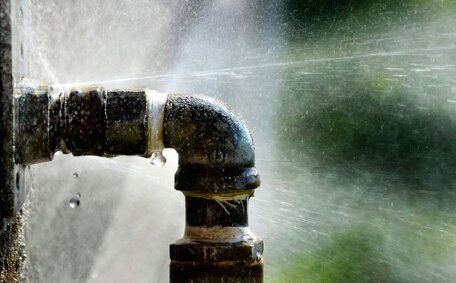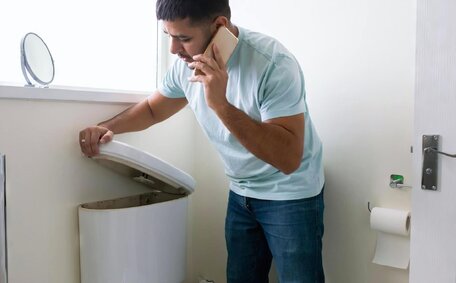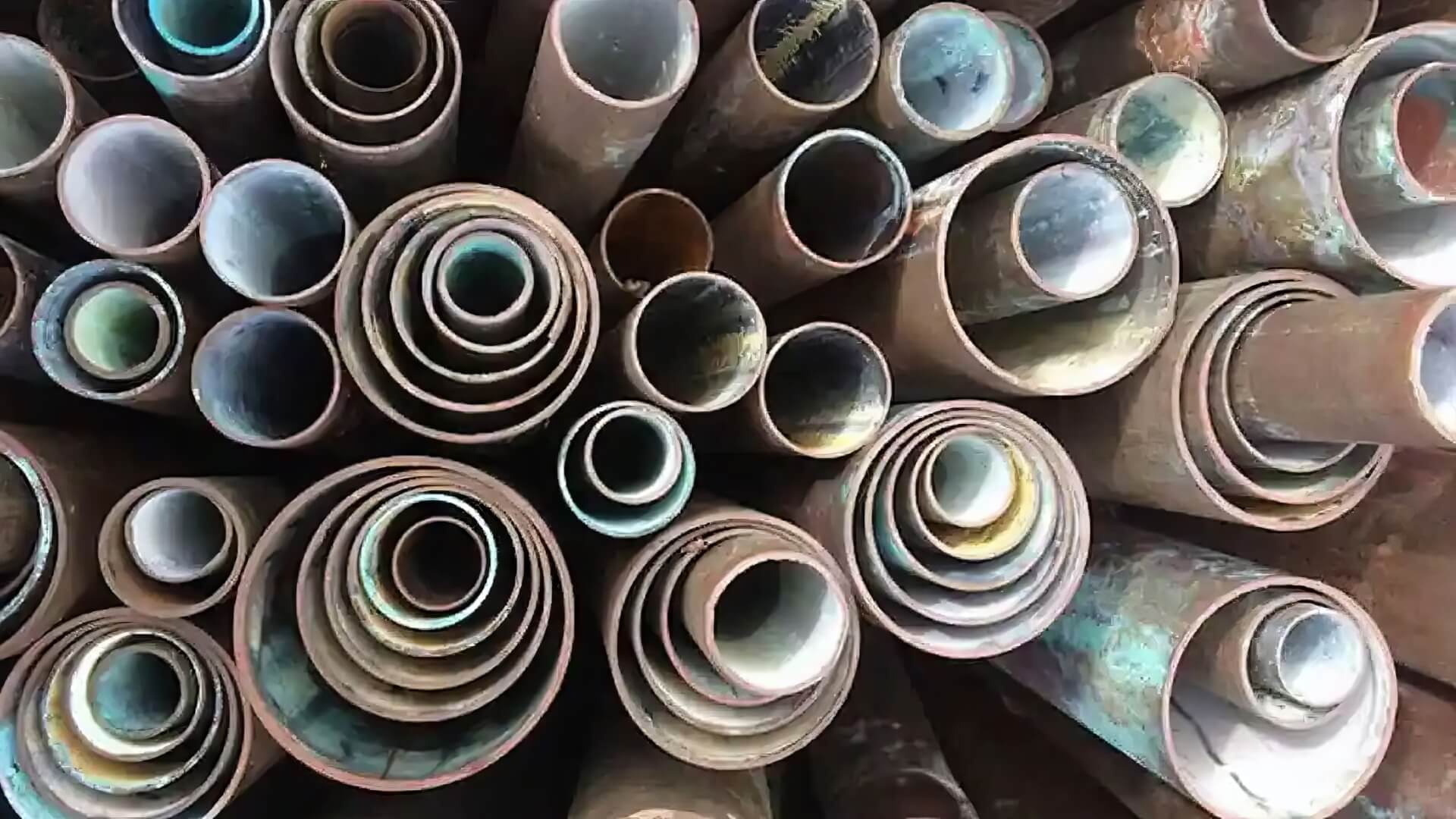
10 Signs Your Hot Water Heater Will Fail
If your water heater is old, leaking, rusty, noisy, not heating water properly or has low pressure, it could fail soon. Get your hot water system inspected today.
Read MoreOne of the most effective ways to prevent plumbing emergencies is to conduct regular maintenance and inspections of your plumbing system. This involves checking pipes and fixtures for leaks, corrosion, clogs, and other issues. It’s recommended to inspect exposed pipes every 3-6 months and to have a professional inspect concealed pipes once a year.
During your inspection, check under sinks for leaks, test toilets for stability and flushing issues, and inspect faucets for drips or reduced flow. Look for mineral deposits, discoloration, and signs of rust or decay on pipes. Also check water pressure by turning on multiple faucets - low pressure could indicate clogged pipes.
inspecting pipes and fixtures, check that drains are free of debris. Pour hot water mixed with baking soda and vinegar down drains weekly to break up grease.
Use a drain snake monthly to remove built-up gunk. Avoid pouring fats or harsh chemicals down drains.
Cleaning gutters, insulating pipes, and maintaining appliances like water heaters should also be part of your maintenance routine. Replacing worn washers and seals can prevent leaks.
Regular maintenance allows issues to be addressed before they become bigger problems. It also saves money compared to emergency repairs. By taking preventative measures, you can keep your plumbing in good working order and reduce the risk of emergencies.
Knowing where your home’s main water shutoff valve is located can help prevent catastrophic water damage in the event of a burst pipe or other plumbing emergency. This valve allows you to turn off the water supply to your entire home at the source.
Start by locating your home’s water metre. It may be a round knob, lever, or wheel.
It is usually found at the front of the house near the street or sidewalk. The shutoff valve is typically found attached to the water metre or pipe coming out of the ground nearby.
Test the valve to make sure you can turn it fully to shut off water. Having quick access to shut off water can help minimise flooding and damage.
Turn it clockwise to close and counter-clockwise to open. Make sure other household members know the location as well.
If a pipe bursts or you have a major leak, immediately turn the main valve off. This will stop water from continuing to flow out. Then call a plumber to repair the issue before turning water back on. This will stop water from continuing to flow out.
Knowing your home’s water shutoff location is vital preparation for plumbing emergencies. Taking a few minutes to identify the valve can save significant time, money, and stress if disaster strikes.
Preventing clogged drains is crucial to avoid plumbing emergencies. Clogs occur when hair, grease, and other debris accumulates in pipes. Over time, this buildup restricts water flow and can cause complete blockages.
Avoid pouring fats, oils, and grease down drains. Scrape food scraps into the trash instead of the garbage disposal. Avoid pouring fats, oils, and grease down drains. Use a drain snake monthly to clear buildup before it turns into a clog.
If you have a clogged drain, avoid chemical drain cleaners. While they may seem like an easy fix, the caustic chemicals actually damage pipes over time. The better solution is to use a plunger, drain snake, baking soda and vinegar, or call a plumber for professional drain cleaning.
For severe clogs, a plumber has specialised tools to clear blockages without damaging pipes. They can use high-pressure water jets, mechanised snakes, or hydrojetting if tree roots have invaded sewer lines.
Left untreated, clogged drains can back up sewage into your home or burst pipes under pressure. By taking preventative measures and addressing clogs promptly using safe methods, you can avoid costly plumbing disasters.
Certain items can severely damage drains and pipes if flushed or poured down sinks and toilets. Certain items can severely damage drains and pipes if flushed or poured down sinks and toilets.
Avoid putting fats, oils, and grease down any drain. Use paper towels to wipe greasy dishes instead.
Disposable wipes labelled as 'flushable’ will still clog pipes. They do not break down like toilet paper. Baby wipes, cleaning wipes, and more should always go in the trash, not down the toilet.
Food waste can also accumulate in pipes if washed down the drain. Scrape plates into the trash and use drain catchers to snare stray particles. Rice, pasta, and coffee grounds are common offenders.
Chemical drain cleaners may seem like an easy fix for clogs, but the caustic ingredients will erode plastic and metal pipes. Avoid these and opt for safer methods like baking soda and vinegar instead.
Various household items like floss, cotton swabs, dental floss, condoms, and feminine hygiene products can get tangled in pipes and cause backups. Never flush anything besides waste and toilet paper.
By keeping harmful substances out of your home’s plumbing, you can prevent expensive damage, backups, and flooding. Only human waste and toilet paper should go down toilets, and use drain catchers in sinks.
Installing protective devices like sink strainers, tub drain covers, and toilet tank flappers can prevent debris from clogging drains and causing plumbing disasters. Strainers catch food particles, hair, and other debris before they go down the drain. Drain covers prevent toys or other objects from falling into pipes.
Flapper valves inside toilet tanks prevent sewer gases and debris from backing up into bathrooms. Replacing old worn flappers ensures a proper seal. Our professional plumbers can install these protective devices throughout your home.
Strainers should be cleaned regularly to maximise effectiveness. Monthly drain cleaning will also keep pipes clear. Consider installing hair catchers, screens, and filters in key drains prone to clogs.
Investing in protective plumbing devices can extend the life of your pipes and prevent costly repairs from clogged or broken drains. We specialise in installing strainers, valves, traps, and backflow preventers that keep plumbing systems safe.
Replacing old or damaged plumbing should be a top priority to prevent emergencies. Pipes have a lifespan, usually around 50 years for copper and 70-100 years for cast iron. Beyond this, they are prone to cracking, bursting and leaking.
Keep an eye out for telltale signs you may need pipe replacements. Slow drains or bad odours also suggest deteriorating pipes.
If you spot water damage like mould or damp spots, that indicates a leak. These include: frequent clogs, low water pressure, banging pipes, discoloured water, and leaks.
Never ignore a leak.
Even small drips can dump thousands of litres over time. Even small drips can dump thousands of litres over time. A pinhole leak can easily turn into a ruptured pipe, flooding your home.
Our professional plumbers inspect plumbing and recommend replacements when ageing pipes show signs of wear. We use modern, durable piping that can last decades with proper care. Replacing deteriorated plumbing proactively saves you the expense and heartache of emergency leaks down the road.
Insulating your pipes is an important preventative measure, especially during winter months. Uninsulated pipes are at risk of freezing in cold weather. When water freezes and expands inside pipes, it can cause them to burst and leak.
Wrap all exposed water pipes with specially designed foam pipe insulation. This provides a protective barrier to keep pipes warmer. Pay special attention to pipes located in unheated areas like crawl spaces, basements, attics and garages.
Outdoor pipes and hose bibs should also be insulated or winterized to prevent freezing. Use foam covers or heat tape on outdoor pipes. Turn off and drain any pipes vulnerable to freezing when temps dip below freezing.
Insulation helps regulate pipe temperature and reduces heat loss. This can help prevent leakage as temperature fluctuations cause pipes to contract and expand. Insulation also absorbs vibration and noise.
Damages from burst pipes due to freezing can cost thousands in repairs. Prevent this by insulating all exposed hot and cold water pipes. If pipes have already frozen, never attempt to thaw them with an open flame. Call a plumber immediately.
Monitoring your household’s water usage and plumbing bills can provide early warning signs of leaks and other issues. Take note of your daily water usage - sudden spikes could signal a leak. Also check that usage aligns with your family’s habits.
Examine your water bills for abnormal increases. Compare seasonal bills year-over-year. Examine your water bills for abnormal increases. Examine your water bills for abnormal increases. Examine your water bills for abnormal increases.
Installing a water metre lets you track flow rates hourly. Smart metres can even detect abnormal usage patterns automatically. They generate custom alerts to flag potential leaks.
Beyond leaks, usage patterns may show inefficient appliances, running toilets, and more. Usage monitoring provides insight to water waste so you can address problems promptly.
We recommend logging water usage weekly. Compare bills monthly and note seasonal variation. Report spikes immediately so they can be inspected.
Vigilant monitoring protects your home and wallet from catastrophic plumbing disasters.
Having a trusted emergency plumber’s number readily available can help provide peace of mind and quick resolution if a plumbing catastrophe strikes. Plumbing emergencies like burst pipes, gas leaks, and sewer backups require immediate attention to prevent property damage and ensure household safety.
At Mortdale Plumbing, we offer 24/7 emergency plumbing services to homes and businesses throughout Mortdale and surrounding suburbs. Our skilled plumbers have the experience and equipment to rapidly respond and rectify any plumbing emergency.
We recommend keeping our emergency contact number somewhere handy like on your fridge or in your contacts. That way it is easily accessible should an urgent issue arise after hours. Knowing you can promptly reach an emergency plumber lessens anxiety and allows for a swift response.
In a plumbing crisis, every minute counts. Don’t hesitate to call our emergency hotline anytime if you encounter an unexpected plumbing failure. We will despatch licenced technicians immediately to assess and resolve the problem.
Being prepared with Mortdale Plumbing’s emergency number can give you confidence that expert help is only a call away. Trust us to provide reliable, efficient emergency services to get your plumbing running properly again.
If your water heater is old, leaking, rusty, noisy, not heating water properly or has low pressure, it could fail soon. Get your hot water system inspected today.
Read MoreIf you have plumbing fixtures that are over 10 years old or showing signs of wear like leaks and cracks, it’s important to replace them to prevent more costly water damage in the future. Replacing worn fixtures improves water efficiency.
Read MorePipe relining is a trenchless method that renews pipes from the inside out. It involves draining, drying and scrubbing the pipe interiors before applying materials like silicone, PMMA or epoxy resins to create a resilient, soft, temporary liner inside the existing pipes.
Read MoreMortdale, 2223 NSW
We will call back as soon as possible.




